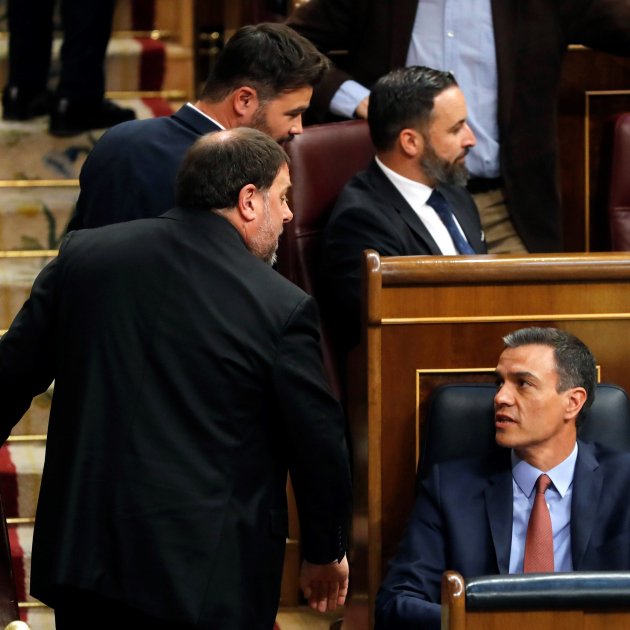Today, details emerged of a report from the UN Working Group on Arbitrary Detentions which called for the immediate release of Catalan pro-independence leaders Oriol Junqueras, Jordi Cuixart and Jordi Sànchez.
After the report's release, Benet Salellas, representing Cuixart, brought it up in court and asked for his client's release on the basis of the working group's findings. Presiding judge Manuel Marchena said he had every right to make such a request, but that it should be submitted in writing, instead of verbally during proceedings.
Presenting the report's conclusions in a press conference in London, meanwhile, Ben Emmerson, the international lawyer behind the original application to the working group, said that "if Spain doesn't show it can be a democracy, there's no space for it in the heart of a modern Europe". He also warned that "if Spain ignores this sentence it will be a flagrant violation of international law" which could lead to it being condemned as a "rogue state" and the "UN taking actions against Spain".
The lawyer had a message directly for prime minister Pedro Sánchez: "If the new Spanish government wants to demonstrate that Spain is governed by the rule of democracy, it has no alternative to releasing the prisoners immediately".
The Spanish government
The Spanish government, for its part, was hard-hitting in its response. They suggested that the report "raises doubts about [the group's] independence and impartiality" and even denounced its use "for spurious ends". They see it as "interference" in the trial, with hearings to be suspended shortly awaiting a verdict, and attribute it to "manipulation and disinformation".
They claim the "report's authors don't know what crimes the complaint's promoters are accused of in Spain" and that, contrary to what the report says, holding a referendum is "clearly contrary to the Spanish Constitution". They also accuse the working group of not respecting the separation of powers by asking the government to take actions towards the prisoners' release.
